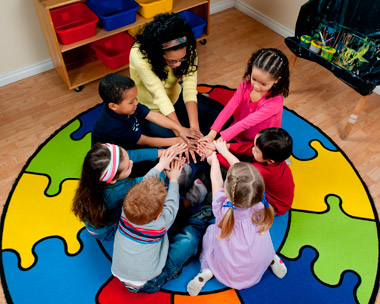Sharing
Web Resources:
UNICEF
and NAEYC
Last week I shared some leading
organizations that help end poverty. This week I want to share two of the
organizations that I have followed up on to see their relation toward my own
professional development and to look at how it is possible to amass such
successful empires toward the well-being of child education and development.
A professional Development-
The United Nations International Emergency
Children’s Fund (UNICEF) and the National Association for the Education of
Young Children (NAEYC) are organizations that I find extremely beneficial when
it comes to children. During my professional development, I have discovered
ways in which I can contribute and advocate for the sake of children and the
end of poverty such as contributing, acquainting myself, and remain dedicated
to the field of ECE. What professional wouldn’t thrive for this!? “We believe
ZERO children should be abused, exploited, or denied the right to health care,
education, and protection” (UNICEF, n.d.).
As I aspire in ECE, I advocate to that!
New Ways of thinking/New information-
Both the UNICEF and the NAEYC see that
children are given provisions and adequate attention when it comes to education
and welfare. Their websites provide open information to anyone interested in
the well-being of children and families and offer ways donations and any
contributions are received, accepted, and appreciated. Looking at economy,
making investments to the field of Early Childhood Education and making
investments to families relax long-term savings and make nations wealthier when
it comes to health, stability, and education for all. If the people are taken
care of, the world will continue to turn… -poverty does not win!!!!! The UNICEF
and the NAEYC share compassion to child care and how that is achieved has a lot
to do with economists and their position in economy’s production. Support from
federal, state, and local governments’ factor into this matter in a way to
build up the United States, by example. To become a more elate nation Americans,
like you and I, ought to become more involved securing effective learning and
development for children through professional development and understand an
economists’ position.

New insights-
Looking at both organizations, the United
Nations International Emergency Children’s Fund (UNICEF) and the National
Association for the Education of Young Children (NAEYC) they share so much
information to make sure poverty does not devour child ambitions and learning.
Professionals aim to avoid the issue of poverty and with the help of leading
organizations investments are made to make sure children and families remain
focused on and accounted for. This is insightful especially when economy is
testy and funding is challengeable. Help from federal, state, and local
government proves that economy remains productive and future outlooks are fair.
Audacious as the field of Early Childhood Education is, it’s the investing and
compassion that seems significant.

Works
Cited





